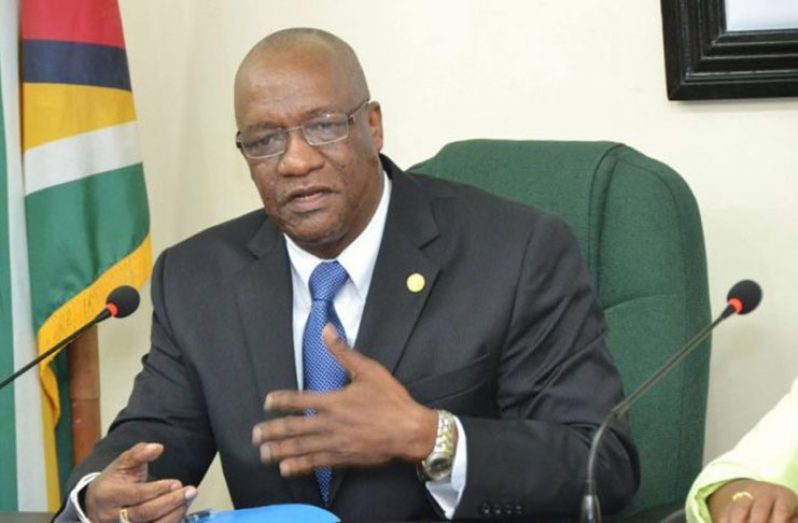A team from the International Monetary Fund (IMF) is currently in Guyana conducting a scouting assessment of government’s policy direction relative to the oil-and-gas sector.
Cabinet Secretary and Minister of State Joseph Harmon told reporters on Thursday that the IMF team is in Guyana following a request by Finance Minister Winston Jordan for technical assistance and advice in relation to capacity-building to manage anticipate revenues from the oil-and-gas resources.
“The mission leader of the team informed Cabinet that Guyana had become eligible for assistance from the IMF under a donor funded trust fund and explained that the team would make a scoping assessment of government’s policy direction and meet with the persons and agencies that would be involved in managing revenues in the oil-and-gas sector,” said Harmon.
The minister of state noted that the IMF assessment would enable the institution to determine areas where assistance is needed and could be provided.
Additionally, a note providing the details of the IMF assessment and forms of assistance would be presented to the government at the end of the mission.
Meanwhile, the IMF in June 28 publication on the 2017 Article IV Consultation welcomed Guyana’s continued economic growth, the improvement in its external position, and its positive medium-term outlook, which is supported by the expected start of oil production in 2020.
The executive directors of the Fund noted that the local economy is vulnerable to external shocks and domestic challenges remain but underscored the importance of preserving macroeconomic and financial stability while making growth more broad-based and inclusive.
“Directors welcomed the authorities’ plans to establish a comprehensive framework for managing oil wealth, and stressed the importance of having a transparent and rules-based framework in place before oil production starts,” the report stated.
In like vein most of the directors supported staff’s recommendation for a moderate fiscal consolidation to slow debt accumulation and safeguard against adverse shocks before the onset of oil production.
However, a few directors considered a more gradual consolidation appropriate in light of the country’s development needs, the report stated.
In 2015, Exxon Mobil made a significant oil discovery offshore, which is estimated to hold between 800 and 1,400 million barrels of oil. Commercial production is planned to commence by mid-2020, with an output of 100,000 barrels/day.
And, the IMF described the oil sector as “fairly isolated from the rest of the economy, with no significant spillovers at this time”.
The Fund noted that oil will have a large impact on Gross Domestic Product (GDP), but a much smaller impact on GNP (Gross National Product).
It is believed that as Guyana grows richer, it could lose access to grants and concessional financing, which are projected to taper off with the start of oil production.
Moreover, the IMF report states that the development of oil resources and public investment will support medium-term growth.





.jpg)








